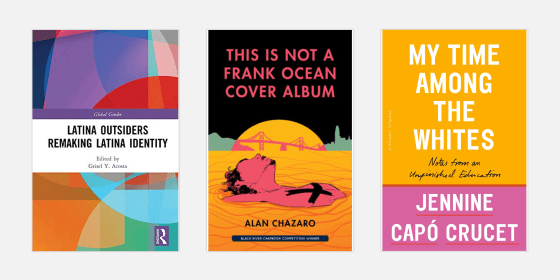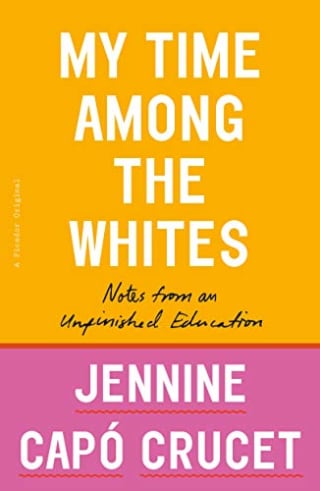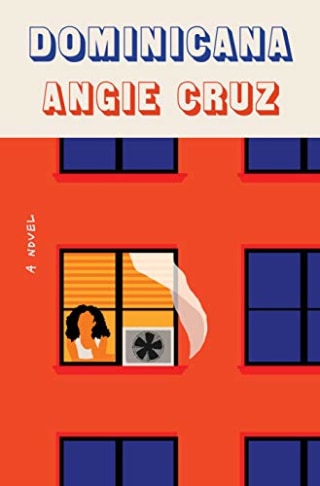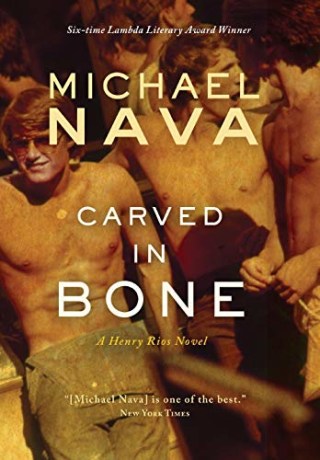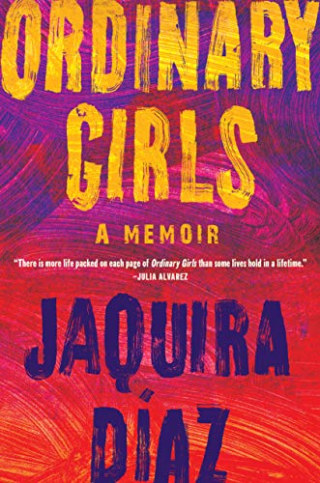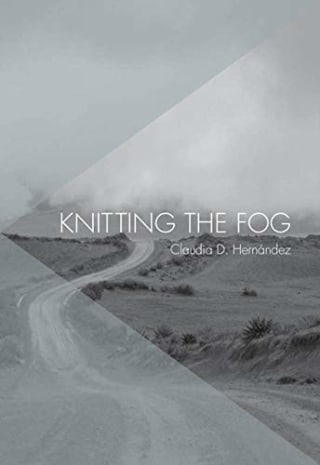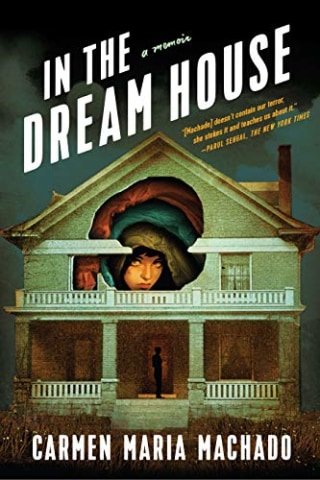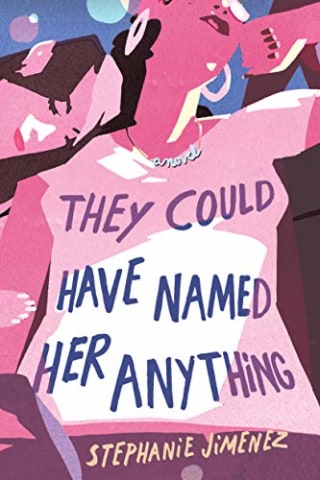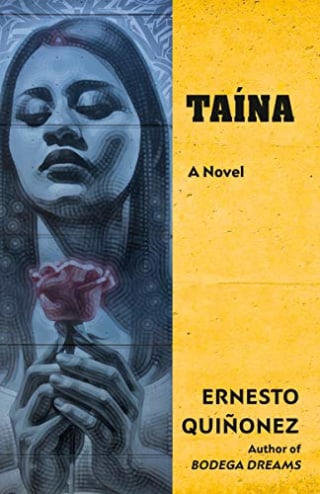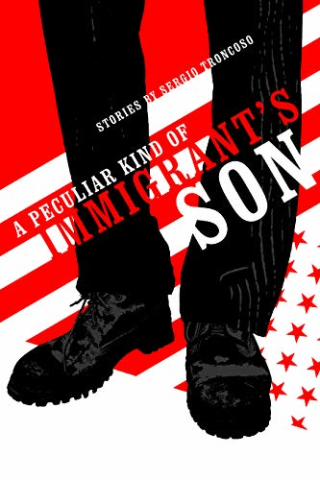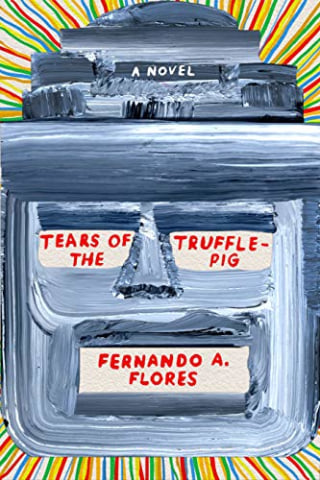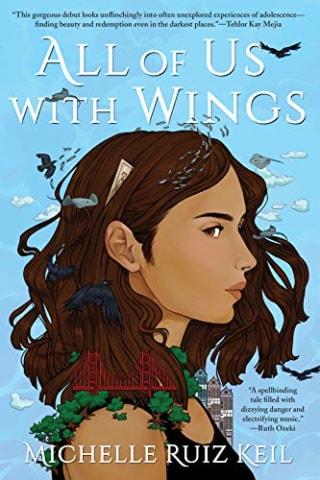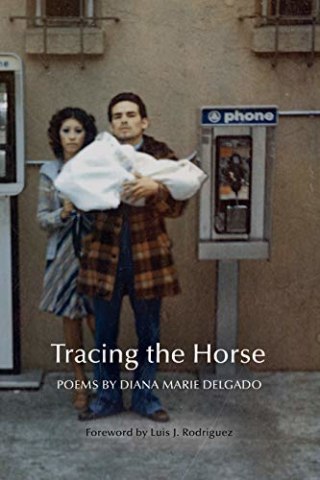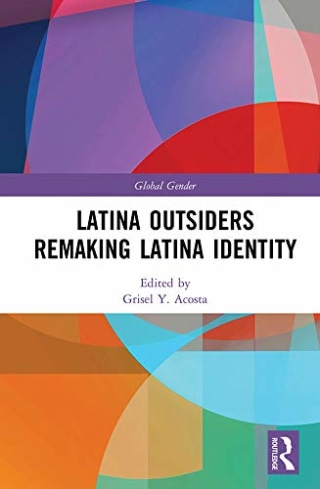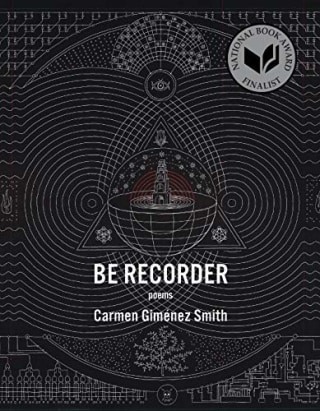This year’s Hispanic Heritage Month was an exciting season for publications by your favorite Latino authors and a few noteworthy newcomers.
Highlights include Carmen Maria Machado’s new memoir, two years after her wildly popular story collection, "Her Body and Other Parties;" the return, after two decades, of Michael Nava’s San Francisco lawyer-turned-sleuth Henry Ríos; and a remarkable debut by Diana Marie Delgado, a Chicana poet from La Puente, California. The Chicano writer Luis J. Rodríguez says of Delgado’s work: “I feel the bones she rattles, the blood currents she rides, the imagery and language that spiral up the crushed and diminished voices.”
Not so long ago, a person seeking books by Latino authors had to mine the bookstore shelves for that rare but rewarding find. Today, the Latino literary field is thriving and has become quite visible, thanks to the growing recognition across various communities that our writers are dynamic, engaging and continually attuned to the politics of the present — something Latino readers have always known.
1. Jennine Capó Crucet, "My Time Among the Whites: Notes From an Unfinished Education" (Picador)
Jennine Capó Crucet’s honesty about the privileges of being a light-skinned Latina and the challenges of being a first-generation Cuban American and a first-generation college student give this collection of essays about navigating predominantly white spaces a personal touch that is both stirring and inspiring. “It took me leaving Miami to realize I was not white,” she writes as she enters academia as a student, then a professor, moving to Ithaca, New York, then to Lincoln, Nebraska, where she becomes a wedding crasher in order to reconcile with her sense of isolation and her loneliness post-divorce. But it’s her ability to find humor in most of her experiences, such as the story about her parents explaining how she was named after Miss America 1980, that shines a warm light on these compelling lessons about assimilation, acculturation and familial love by the acclaimed writer and New York Times contributing columnist.
2. Angie Cruz, "Dominicana: A Novel" (Flatiron Books)
After the death of dictator Rafael Trujillo, the Dominican Republic is poised to begin its healing, but economic and political upheaval fling its communities into further chaos. For the Canción family, young Ana might be their ticket off the island, so they push her into a loveless marriage with a man twice her age who whisks her off to New York City. Vulnerable but not so naïve, Ana is able to survive the cold city streets and her abusive relationship: “I have learned a lot from growing up with animals.” But every day is a new test of her will to endure for the sake of her loved ones and to resist the possibility of true love. "Dominicana" is a triumphant return for Cruz, 14 years after the publication of her last novel. The journey of Ana Canción is one of the most evocative and empowering immigrant stories of our time.
3. Michael Nava, "Carved in Bone" (Persigo Press)
Henry Ríos, a criminal defense lawyer, is enlisted by an insurance company to investigate a few questionable claims. The year is 1984, when the AIDS crisis is at its peak, and Ríos’ journey into the private lives of the company's clients brings to light the complexities of insuring gay men and collecting after their demise. There’s one case in particular — the alleged accidental death of a runaway from Illinois who went on to prosper in San Francisco — that captivates Ríos’ curiosity and sends him even deeper into the distress of living under the specter of an incurable disease. Nava’s new mystery novel will appeal to long-time fans of Henry Ríos, but new readers will find a moving portrait of men responding wisely and sometimes foolishly when faced with their own mortality.
4. Jaquira Díaz, "Ordinary Girls" (Algonquin Books)
In her striking memoir, Jaquira Díaz recounts a tumultuous journey from her carefree girlhood in Humacao, Puerto, Rico to a troubled adolescence in Miami, her life upended by her mother’s post-divorce spiral into drug addiction. She adores her father despite his womanizing but he’s been pushed away by her mother’s abusive behavior — including abandoning Díaz and her sister, then on impulse returning to claim them in the dead of night. Neglected, Díaz finds kinship with other like-minded outsiders like Boogie, China, Flaca and Chanty. Not everyone survives into adulthood, but Díaz, drawing on the fighting spirit that failed her mother, is able to find direction in the military followed by a college education. Díaz’s story is absolutely breathtaking.
5. Claudia D. Hernández, "Knitting the Fog" (The Feminist Press)
Though there are countless stories about undocumented immigrants taking that dangerous trek from their homelands to the U.S.-Mexico border, few are first-hand accounts, and even fewer are told from the perspective of children, which makes Hernández’s memoir quite unique. Claudia D. Hernández’s world is confined to a small village in Guatemala, which suddenly doubles into two villages as relatives take turns caring for her during the three years her mother is in El Norte, fleeing an abusive marriage. But her mother “had a backbone like no other woman” and earns enough to return for her daughters, watching over them as they journey 21 days from flophouse to flophouse before reaching California. The story alternates between poetry and prose, between reflection and testimony, honoring a mother’s strength and sacrifice.
6. Carmen María Machado, "In the Dream House" (Graywolf Press)
Celebrated for her inventive writing, Carmen María Machado will not disappoint her fans with this dazzling memoir that journeys through a maze of stories, each vignette (some only a sentence long) an individual room containing a moment of wonder, curiosity or sorrow. At the center of this Dream House is a chronicle of an abusive same-sex relationship, which continually sends Machado through the corridors of her youth, in which she recalls other times she felt broken and other ways she fortified her spirit. “The memoir is, at its core, an act of resurrection,” she writes, which is another way of saying she is gathering the pieces in order to remake from the ruins. The house that Machado builds is surprising and impressive.
7. Stephanie Jimenez, "They Could Have Named Her Anything" (Little A)
The plot twist at the center of Stephanie Jimenez’s novel transforms this narrative from a typical coming of age tale into the story of a young woman who learns quickly how to embolden herself in a world where she is subject to abuse. Maria comes from a working-class Ecuadorian-Puerto Rican household in Queens, and Rocky from a wealthy white one, and what begins as a friendship in which opposites attract shifts into one of distrust and suspicion. Each is keeping a big secret from the other, but it’s Maria who runs the bigger risk of damaging her future and destroying her parents’ hopes of sparing their daughter the financial crisis they’re currently experiencing. Jimenez’s error-prone yet shrewd protagonist will appeal to fans of Erika L. Sánchez’s "I Am Not Your Perfect Mexican Daughter" and Lilliam Rivera’s "The Education of Margot Sanchez."
8. Ernesto Quiñonez, "Taína" (Vintage)
Ernesto Quiñonez delivers a poignant story about a young man learning about the uneasy relationships between the U.S. and Puerto Rico and the tensions between American nationality and Boricua identity. An adolescent, Julio makes one mistake after another, guided by his emotions rather than his intellect. He must learn to assess decisions instead of succumbing to his impulses — and his unorthodox guiding light is Taína, a young woman who swears she became pregnant through immaculate conception. The roles of religion, folk medicine and gender dynamics (particularly in Julio’s household) are startlingly depicted, resulting in a portrait of a community that is still contending with social issues that have shaped Puerto Rican identity in the 20th century.
9. Sergio Troncoso, "A Peculiar Kind of Immigrant’s Son" (Cinco Puntos Press)
These poignant short stories shed a startling light on the middle-class experience of Chicanos in New York. An Ivy League education and job security in a cosmopolitan city far from their youth in the U.S.-Mexico borderlands doesn’t mean the American dream has been realized without further conflict. Some continue to struggle with the feeling of dislocation, some begrudge being seen as foreigners when they visit their beloved border towns and others are struck by the harsh reality that even in a liberal multicultural setting they’re not spared from violence, prejudice and the anti-immigrant noise. Sergio Troncoso dispels the myth of assimilation as a safe haven and reminds readers that distance from a working-class upbringing doesn’t absolve a person from the responsibility to one’s community. The wounds of leaving home never truly heal.
10. Fernando A. Flores, "Tears of the Trufflepig"
In this widely acclaimed, wild ride of a novel with a biting critique of the present moment, Fernando A. Flores imagines an alternative borderlands in the not-so-distant-future. Two walls divide the U.S. and Mexico, with a third to be built, although nothing stops undocumented immigration; climate change has decimated most birds, which can be engineered for a steep price; and the Border Protectors are becoming more corrupt as the government increases their power and authority. Esteban Moisés Bellacosa Dolíd’s plan to lie low during the age of government-sanctioned terror and instead focus on mourning the tragic deaths of his wife and daughter are derailed by the news that his estranged brother has been kidnapped. Suddenly, Bellacosa finds himself at the center of the madness, and face to face with the mythological Truffle Pig whose magic takes him deeper into his personal pain.
11. Michelle Ruiz Keil, "All of Us With Wings"
By age 17, Xochi has already lived a hard life, so when an opportunity arrives to reinvent herself as the governess to a child, the daughter of a couple in a rock band, she expects to live in the present and forget about the past. But the past now lives in the form of “child-sized beings with claylike skin and flowing hair” that have come to exact revenge on the people who have wronged Xochi, including her mother. Suddenly, New Xochi’s hard-won comfort begins to crumble as the Old Xochi’s trauma breaks through. Michelle Ruiz Keil’s strange but original premise gives fresh perspective to the ways pain and rage can manifest themselves as toxic elements that threaten a person’s well-being and endanger those around them.
12. Alan Chazaro, "This Is Not a Frank Ocean Cover Album" (Black Lawrence Press)
A Bay Area native, Alan Chazaro responds to his landscape with compelling questions and observations about what it means to live in the center of a bicultural identity (“I really can’t say/ I’m Mexican just as I really can’t say/ I’m American. Someone built this bridge between me”) and beneath the weight of toxic masculinity (“I’ve been taught to never use/ umbrellas when it rains, to never/ pull from inside your gut for explanation / to never turn at angles that might expose you"). His frame of reference is shaped by a millennial’s interactions with popular culture and social media, tinging his language with clever and always insightful wording: “Post-colonialism is a word that means re-hustle, / but should never be re-Tweeted.” This dynamic new voice is a poet to watch; look for his forthcoming collection, "Piñata Theory, out next year.
13. Diana Marie Delgado, "Tracing the Horse" (BOA Editions)
Growing up in a Southern California city that’s beset by a culture of machismo, Diana Marie Delgado turns to the curative powers of poetry to make peace with the past: “Now in the middle of my life/ my journey is to forgive/ everything that’s happened.” These knockout poems navigate through heartbreak and heartache, like the imprisonment of her brother and the embattled relationship with her father, but connect with glimmers of grace in the most surprising moments: “In church, the boys have so much/ light, plants grow toward them.” The source of her fortitude, however, is her mother, whose own difficult path to womanhood left a blueprint for her daughter to follow: “Maybe Mom’s the horse/ because aren’t horses beautiful,/ can’t they kill a man when spooked?”
14. Grisel Y. Acosta, "Latina Outsiders: Remaking Latina Identity" (Rutgers University Press)
Poet and scholar Grisel Acosta poses a charged rhetorical question: What is more “outside” a Western, patriarchal culture than a woman of color?” She then gathers 39 articles, essays, stories and poems that unpack, affirm and illustrate the ways Latinas express their unique experience at the intersection of class, race, gender and even disability. This anthology defies convenient categorization, but that’s part of its collective and inclusive energy that challenges even the term Latina itself since Latina is not a box but a landscape of inspiration. Standouts include critical studies on the works of Cristina García and Achy Obejas, a powerful testimony by Irene M. Sánchez on being a “radical Xicana Ph.D.,” and the poetry of Analicia Sotelo, Carmen Giménez Smith and the editor, Grisel Acosta.
15. Carmen Giménez Smith, "Be Recorder" (Graywolf Press)
Carmen Giménez Smith reckons with her personal story in her sixth full length collection of poetry. “I always wanted to live in a place like US/ which is how America becomes/ an event that happens only for the lucky,” she writes as she examines the emotional cost of surrendering to the comforts of capitalism and the privileges of American exceptionalism “while the apocalypse roars outside.” What of the brown body, the brown artist who rises to the surface as she finds herself questioning the superiority complex of American nationhood and challenging the complacency and complicity of a middle-class American life? Like Giménez Smith, she “becomes a poet, both brilliant and mean.”
Follow NBC Latino on Facebook, Twitter and Instagram.
